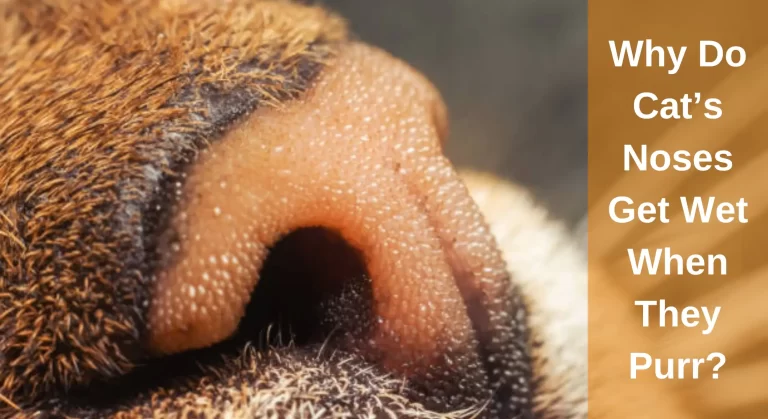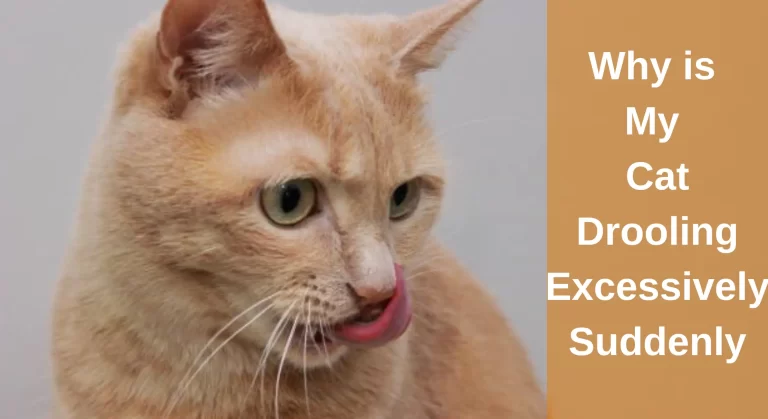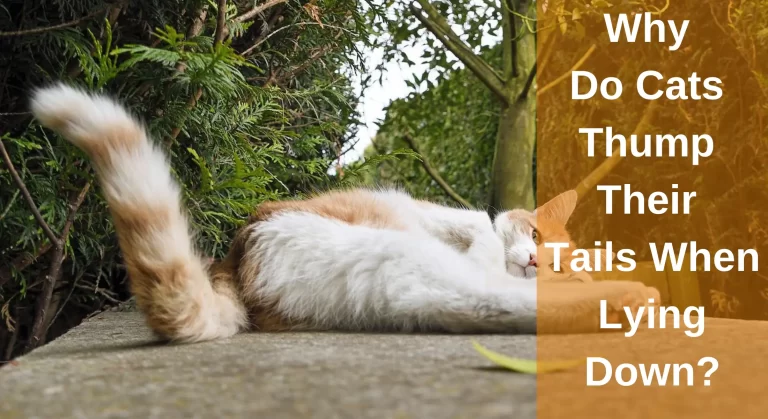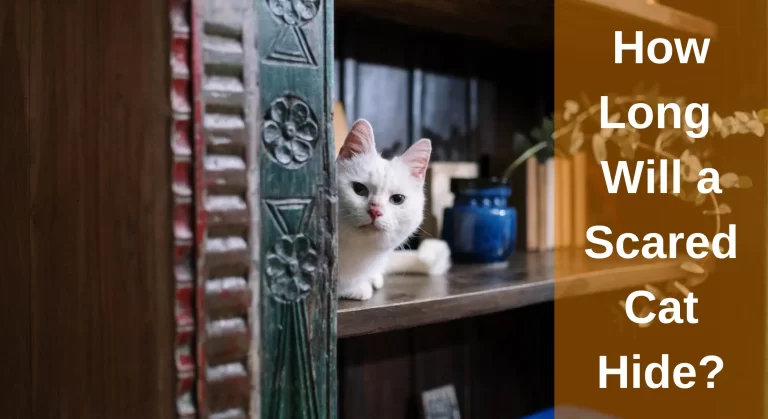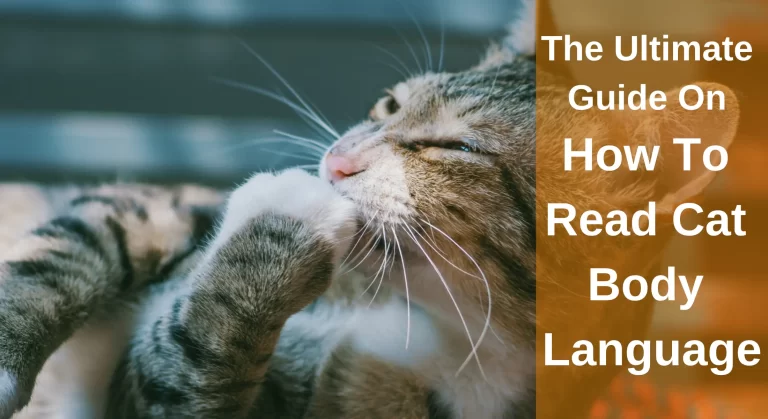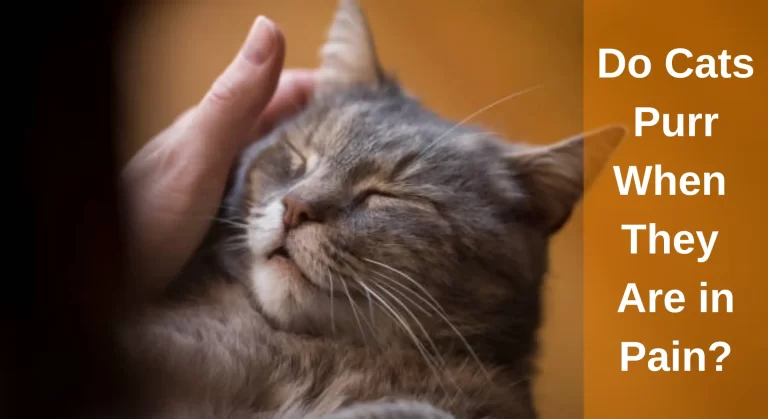Why is My Cat Drinking a Lot of Water and Meowing? All You Need To Know
Cats aren’t huge water consumers; they require 1/2 the amount of water as dogs for each pound of their body mass. But if you find your feline consuming a lot of water, and even gulping it and demanding even more, this could be a warning sign. Now, most of you might be wondering what makes your cat thirsty and why cat drinking a lot of water and meowing.
In normal situations, cat drinks lots of water when you feed them dry canned food and due to playing in extremely hot weather.
But excessive vocalizations and variations in your feline’s need for water are both symptoms of health issues. Polydipsia is excessive water consumption, which is frequently accompanied by kidney failure. Hyperthyroidism and diabetes are two other probable reasons. Both of these illnesses are frequent in cats, particularly elderly cats, making them thirsty.
If you’ve seen your feline drinking and yowling excessively, you’ve come to the perfect place. In this post, I go through all of these health issues in greater detail, covering signs and available treatments. I will also discuss some common reason that makes your cat thirsty and assist you in determining when you should be concerned and what you should do.
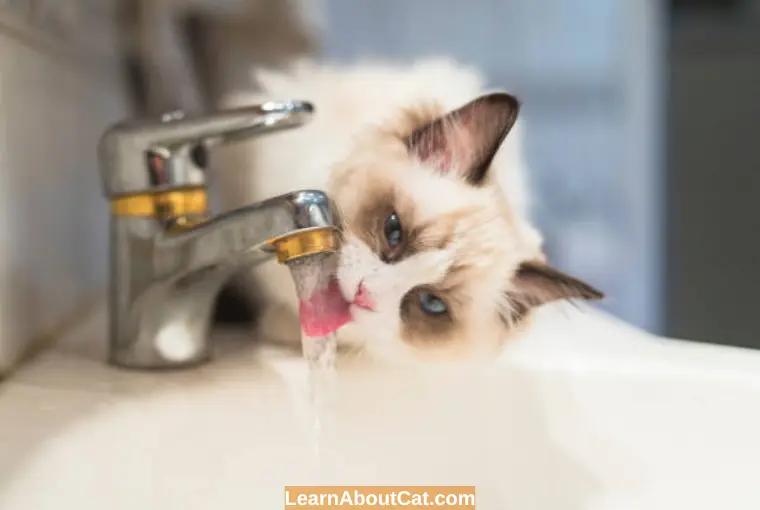
How Much Water Should a Cat Drink Daily?
Cats are notorious for not drinking enough, so what you may think is excessive is actually a healthy amount.
According to veterinarians, your cat is drinking too much if they consume more than 100 millilitres of water per kilogramme of body weight daily. For example, A 4-kilogramme normal cat shouldn’t consume more than 400ml of water daily.
To estimate how much fluids your cat should drink each day based on its weight, look at the chart below:
- 70ml to 110ml for a kitten up to three months old(1.4kg).
- 135ml to 250ml for six months and old(2.7 kg).
- 250ml-350ml for a medium cat(4kg).
- 350ml-5500ml for a large cat (6kg)
Observe how much water your cat consumes and compares it to this quantity if you suspect excessive water consumption.
If your cat’s water consumption is over 100ml per kilogram of body weight, you need to consult a veterinarian. However, if a cat drinks less than this but still shows other symptoms of illness or behavioural changes, it is still a good idea to consult a veterinarian.
How Do I Know if My Cat is Drinking More?
If you have a lot of cats, it might be practically impossible to keep track of who is eating and drinking what because we can’t watch them all the time.
Consider other signs that your cat is drinking more than usual instead of trying to measure how much liquid he drinks.
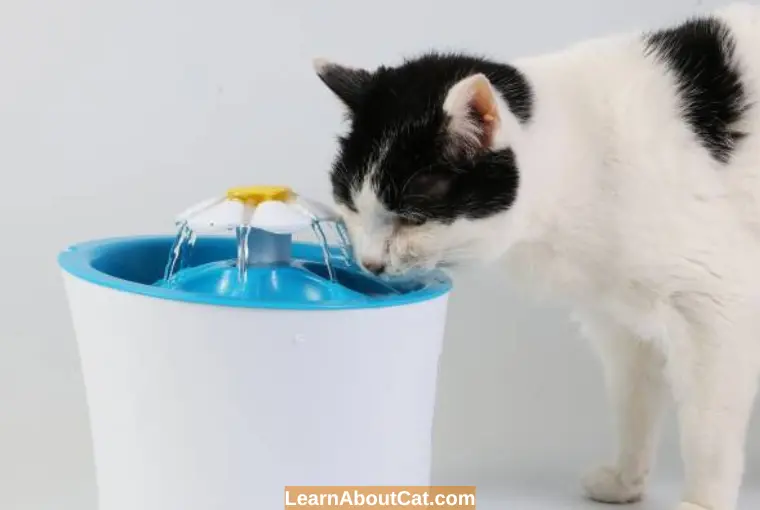
Signs of Increased Drinking in Cats
- Thirsty all the time.
- Running to the water dish more often than usual.
- Require more regular water bowl refills. If they haven’t already, drinking from odd places like ponds or taps.
- Drinking from unusual places they don’t, i.e. sink, basin, taps, toilet.
- Peeing more frequently.
You should see a veterinarian if water intake increases over several days and is not caused by another factor, such as scorching temperatures outside.
Medical Conditions Under Which Your Cat May Feel Thirsty and Keeps Meowing?
Excessive meowing of cats is also almost always an indication of something wrong and a way to let you know that something is wrong. When your cat drinks a lot of water without eating or exhibits other symptoms at the same time, you should seek medical attention.
A list of possible disorders your veterinarian may identify is listed below, along with symptoms and possible treatments.
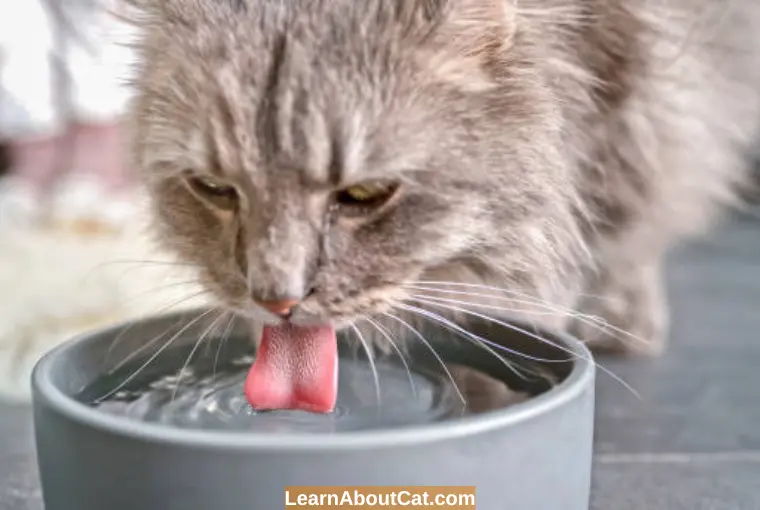
1. Kidney Illness
Your veterinarian will initially assess renal function if any cat is consuming a lot of water and meowing a lot. Given that renal disease is a common cause of cat mortality and should be quickly diagnosed, it is crucial. To do this, they will do blood and urine tests.
Symptoms of kidney disease in cats:
- Excessive urination
- Diarrhoea
- Vomiting
- Lethargy and weakness
- Weight loss
- Loss of appetite
- Nausea
Treatment involves changing your diet to be kidney-friendly (low in protein and phosphorus), taking anti-nausea and antacid medications, and treating concurrent problems.
2. Diabetes Mellitus
Cats with diabetes will have high blood glucose levels because insulin is required to control blood sugar levels. By ingesting it, they are unable to use the blood’s glucose as an energy source. As a result, the body tries to thin the blood and lower the glucose level, which makes the cat thirstier.
Symptoms of diabetes mellitus in cats:
- Increased Thirst
- Increase urination
- Increased appetite
- Weight loss
- Hind limb weakness
A veterinarian will usually prescribe insulin injections for the treatment of diabetes, followed by regular checkups to ensure the medication is working as intended.
3. Urinary Tract Infection(UTI)
Your cat’s high water intake and meowing might also be signs of a UTI. They happen when bacteria enter the bladder and ascend the urethra. Any cat can experience this, but those that have diabetes or renal illness are far more likely to do so. Your cat will often meow more when going to the bathroom since urinating bothers them.
Other symptoms of urinary tract infection in cats:
- Pain while urinating
- Blood in the urine (pink or dark)
- After straining, little or no urine.
- Appetite loss
- Frequently licking their genital area.
- Lethargy and weakness
- Peeing in unusual places
- Not using the litter box
Infection of the urinary tract is easy to treat. Your veterinarian can prescribe anti-inflammatory drugs to help relieve the pain and antibiotics to help fight the infection.
Check Out: My Cat Keeps Going to the Litter Box But Nothing Happens!
4. Hyperthyroidism
Cats suffering from hyperthyroidism, especially elderly ones, are more likely to develop this condition. When your cat’s thyroid gland produces excessive amounts of thyroid hormone, it is considered overactive. Metabolism is regulated by this hormone, which speeds up physiological processes in the body.
Cats with hyperthyroidism often have a faster metabolism, which causes both weight loss and increased appetite and thirst. An increase in urine may accompany a rise in thirst. Your cat may also endure episodes of diarrhoea and vomiting, which would cause them to drink more in an effort to replenish the fluids they have lost.
Symptoms of hyperthyroidism disease in cats:
- Vomiting
- Significant weight loss
- Diarrhoea
- Increased thirst
- Hyperactivity
- Lack of grooming (Unkempt hair coat)
- Increase in urination
Depending on the severity of the condition, treatment options can include life-long medication or treatment with radioactive iodine therapy.
Also Read: Signs Your Cat is Dying of Thyroid Disease
5. Liver Disorder
Due to its involvement in digestion, waste evacuation, and metabolism, its disruption can produce a range of symptoms. One of them is a cat that never eats but continuously drinks water. Excessive vocalisations and meowing are also usual as your cat tries to communicate what’s wrong.
Symptoms of liver disease in cats:
- Weight loss,
- Skin discolouration
- Nausea
- Vomiting
- Exhaustion
Treating liver disease in cats as early as possible is important because it can be fatal if left untreated.
An intensive nutritional program is the main treatment option for the liver disease itself. Cats typically cannot feed themselves and need to be hospitalized and fed special diets through tubes until they can eat again on their own. Intensive support does help some cats recover, but recovery may take months in some cases
Check Out: My Cat Looking At Water But Not Drinking Why?
Why Else is My Cat Drinking a Lot of Water and Meowing?
If your cat is not sick and your veterinarian cannot find anything wrong with your pet, you can relax. Your cat might just be drinking more because of environmental changes. Some examples include:
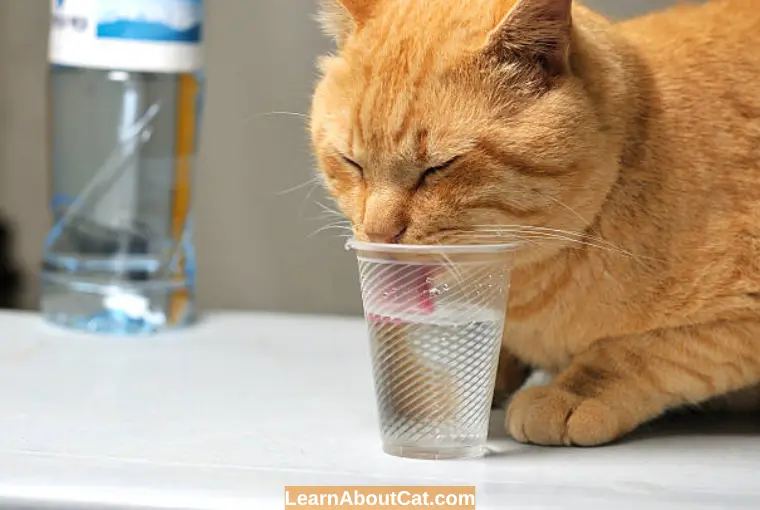
1. Characteristics of FreshWater (Fountain water)
In nature, flowing water is more hygienic and flavorful than stagnant water, which is typically teeming with bacteria and can make cats ill. This propensity has been passed on to domestic cats via thousands of years of evolution.
Therefore, investing in a cat water fountain made of ceramic, stainless steel, or any other device that emits a steady stream of water will usually encourage your cat to drink more water.
2. Getting Well After an illness
For example, a cat that has recently had vomiting or diarrhoea is likely dehydrated since its body has lost a lot of fluid. Then, in an effort to replace the lost fluid, they can drink too much.
3. Hot Weather
If it’s hot and unpleasant, your cat will probably meow more frequently to let you know. Make an effort to offer your cat enough water and a cool area in your home where it may rest if required.
4. New Food
Cats get a lot of their water from nutrition if they consume wet cat food. Therefore, nutritional changes may encourage your cat to eat more. It is typical to see your cat drinking more water if you normally feed it wet food but have just switched to dry food. To make up for the water shortage, they are now getting through their food, which is done.
Why Is My Cat Meowing When Drinking?
Excessive drinking and meowing are typically warning signs. Cats only meow at people, and they tend to vocalise excessively when they’re sick. Cats may thus be meowing simply because they find anything unpleasant about their water bowl.
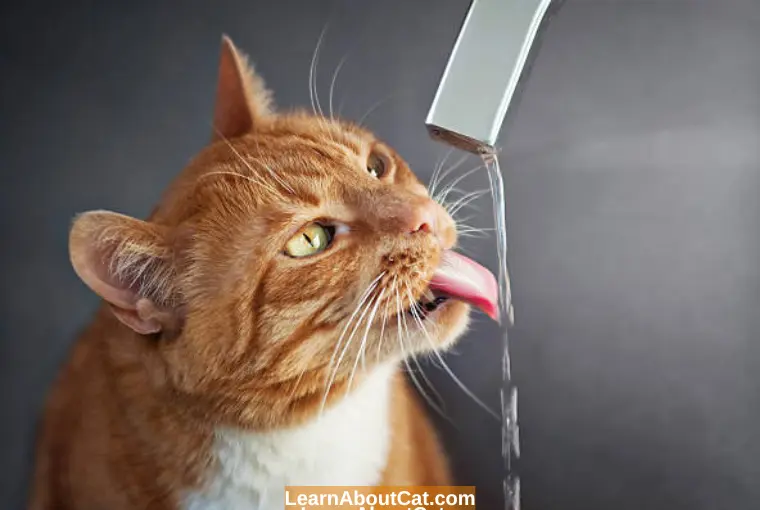
Buying a spill-proof cat dish might be beneficial if this looks like a problem you’re having. Since they won’t tip over, your cat won’t make a mess with these bowls. If not, battery- or AC-powered cat water fountains are excellent options. Simulating running water may discourage your cat from splashing.
The water scene may be appealing to your cat, on the other hand, which is why they meow. Has a fresh bowl of water just been set out on the table? Maybe they’re saying thank you! Do you have a new, entertaining water feature? Maybe they simply adore it! While we may never fully comprehend what our cats are trying to say, it doesn’t matter what they’re saying as long as they’re comfortable and healthy.
What to Know About Cat Hydration?
If your cat is still drinking a lot of water, you might need to consider other options. For example, the food they eat sometimes has too much salt.
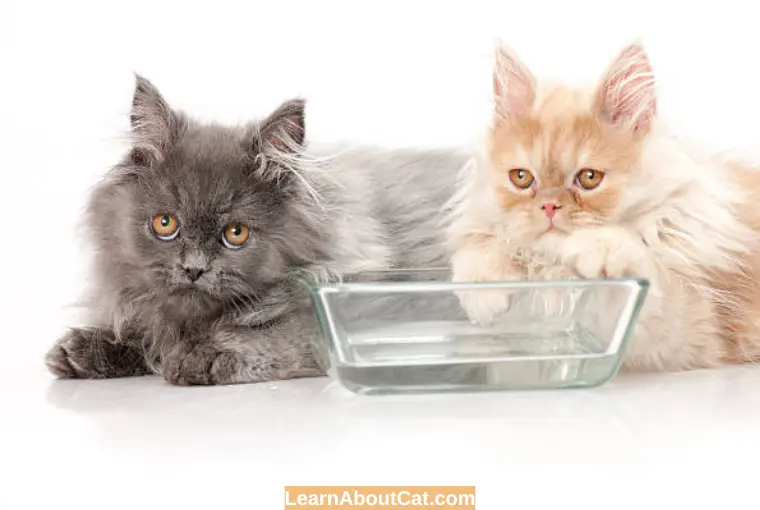
Another scenario is that your home is overheated. If your cat has a thick coat, it can be overheated. To lower the temperature in your home, turn on some fans or turn down the thermostat.
Giving them home-cooked food will work, so try cooking some chicken without any salt or other ingredients.
If you do decide to purchase canned cat food, try a few different brands until you find one that your cat enjoys.
Cats don’t like change because they are creatures of habit. They won’t be pleased if they get tuna and eggs one day and chicken mush the next.
Frequently Asked Questions
Why is my cat all of a sudden obsessed with water?
Your cat may suddenly start drinking water because of the following reasons:
· It may be suffering from some health issue
· It may get thirsty after playing for a long time in hot weather
· It might be in stress
· It may have eaten lots of dry can food
Should I be worried if my cat drinks a lot of water?
In normal situations, a cat’s drinking water is perfectly fine. But if your cat suddenly starts to gulp water with severe meowing, you should be concerned about him. Because, in this case, he might be suffering from some ailment or stress.
Does stress make cats thirsty?
Some felines also start drinking water excessively as a result of stress or fear. The water supply serves as a form of comfort for your feline, and it becomes a routine that it does to comfort itself instead of a basic requirement.
How can I Keep My Cat Hydration?
Cat owners frequently use the following methods to keep their domestic cats hydrated:
1. There must be a water basin in each house room.
2. Feed wet canned food instead of dry cat food.
3. Use a fountain to provide clean water for the cat.
4. If your cat doesn’t drink, consider adding flavour to the water.
All of the aforementioned strategies work. However, if your cat drinks excessive amounts of water, there may be a health issue causing your cat to look for the closest drinking hole.
Why does my cat make weird noises after drinking water?
Felines have small bellies and prefer to drink little water rather than swallow it. If they consume a lot of water rapidly, they may choke and make weird noises since they aren’t habitual of consuming that much water in a single session.
Final Thoughts!
Cats are not naturally thirsty. Since these are desert animals, they obviously don’t require as much water. However, they need some water to stay healthy despite this inherent trait.
If they start to drink too little or too much water, keep an eye on it and don’t be afraid to take them to the veterinarian. When it comes to our canine friends, use caution.
Cats don’t show emotion and don’t give people any indication when they’re ill. By taking them in for regular examinations, you can update their medical history, and you might also be able to identify anything that might have affected your cat in the future.
Related Posts:
Who is Isabella?
My name is Isabella, and I am a dedicated and knowledgeable cat enthusiast. With years of experience caring for cats and a deep love for felines, I made a mission to help other cat lovers navigate the challenges of cat ownership.

